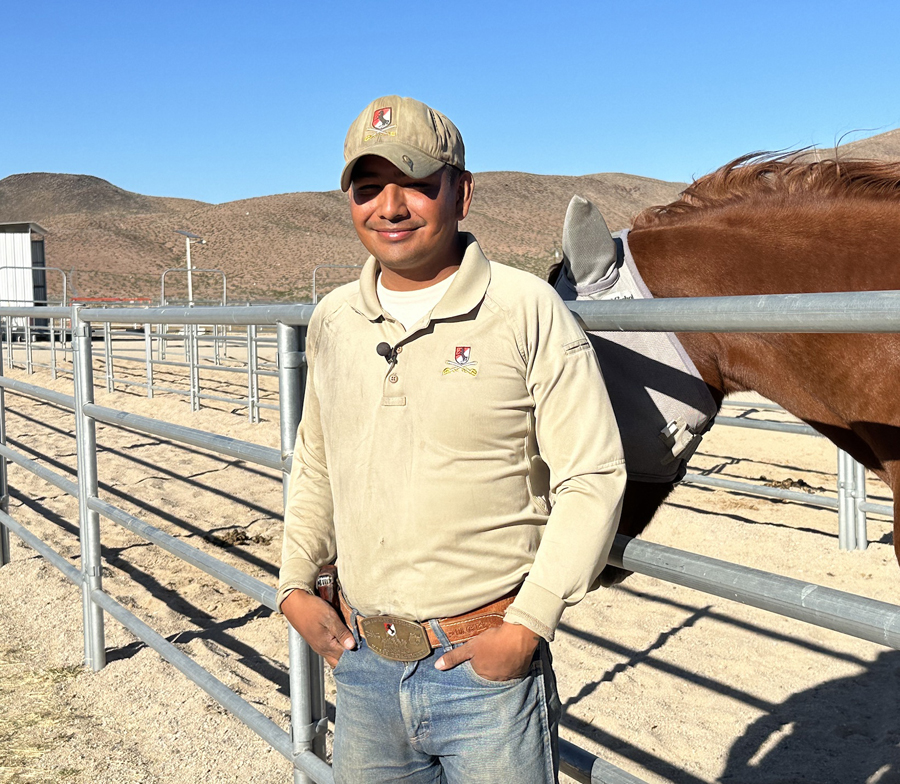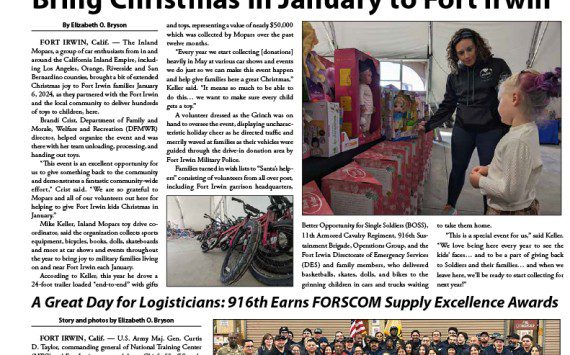
Spec. Joe Ochoa, Headquarters platoon, Bravo Troop, 1st Battalion, 11th Armored Cavalry Regiment, infantryman, currently assigned to the 11th ACR Horse Detachment as a cavalryman, poses in front of a horse pen at the 11th ACR Horse Detachment barn. Ochoa is just one of the Native American Soldiers serving here that we would like to recognize during Native American Heritage Month.
Spec. Joe Ochoa, Headquarters platoon, Bravo Troop, 1st Battalion, 11th Armored Cavalry Regiment, infantryman, currently assigned to the 11th ACR Horse Detachment as a cavalryman, is just one of the Native American Soldiers serving here that we would like to recognize during Native American Heritage Month.
Ochoa is originally from the Yakama Nation, Yakama Indian Reservation, Wash., where he lived as a small child; he is both part Hispanic and part Native American.
Ochoa came to the Horse Det. as a novice rider, like most of the Soldiers here.
Sgt. 1st Class Chris Stemple, 11th ACR Horse Det., acting first sergeant, cavalryman and engineer by trade, is an experienced rider himself, but said that was not important when selecting Troopers for the horse detachment assignments.
“The most important qualities we look for are a strong work ethic, integrity and character,” said Stemple. “We also want people who have a willingness to learn.”
Stemple explained his Soldiers are required to master the equivalent of three years training in about a 12 month period, a feat they accomplish with the aid of skilled contractors and trainers in addition to the veteran horse detachment Troopers.
They not only learn to ride, but become proficient in actual old-school cavalry skills and tactics so they can fulfill their mission as one of the six remaining mounted U.S. cavalry units, providing ceremonial support for the 11th ACR and representing the rich history of the 11th Cavalry in equine competitions and shows across the country.
Ochoa said working with horses here has given him a sense of peace— and has deepened his pride in his indigenous heritage.
“It makes me feel closer to my roots, as many of my ancestors were scouts and rode across the wilderness like we are doing here.” Ochoa said.
Ochoa, who proudly sports the buckle he earned from riding in competitions, says he now prefers to teach and help others over competing.
“I attribute a lot of my success to Puck,” Ochoa said, referring to a recently retired Equine Trooper who he said helped him build his confidence both inside and outside the ring.
“Puck really taught me a lot,” Ochoa said. “He is a really special horse and he helped me overcome my fear of public speaking and being in front of crowds.”
Prior to joining the Army, Ochoa served in the Marine Corps. for over 4 years, where he deployed overseas and then worked with the border patrol in support of counter-terrorism and drug-enforcement operations.
Ochoa said one of the reasons he joined the military was because of his pride in the history of other Native Americans who have served, such as the Navajo (Dine)Code Talkers.
“I am very proud to be part of the Yakama Nation,” Ochoa said. “My ancestors were in an area that was very wild, but they were able to hunt and fish and live off the land to sustain their way of life.”
“I’m also proud that we’ve maintained our culture over the years,” Ochoa added.
Native American Heritage Month is observed in November to call attention to the culture, traditions, and achievements of the nation’s original inhabitants and of their descendants.











